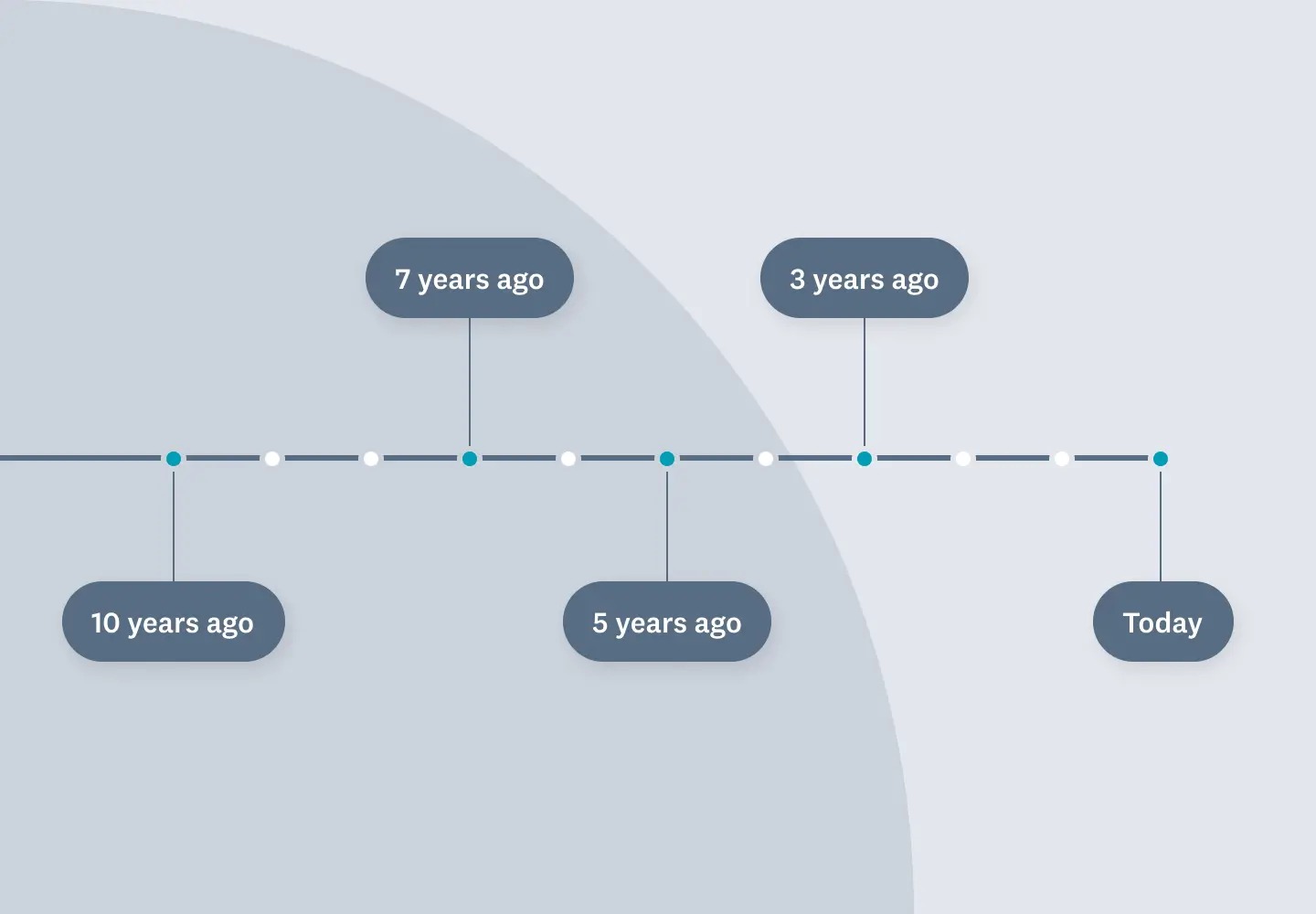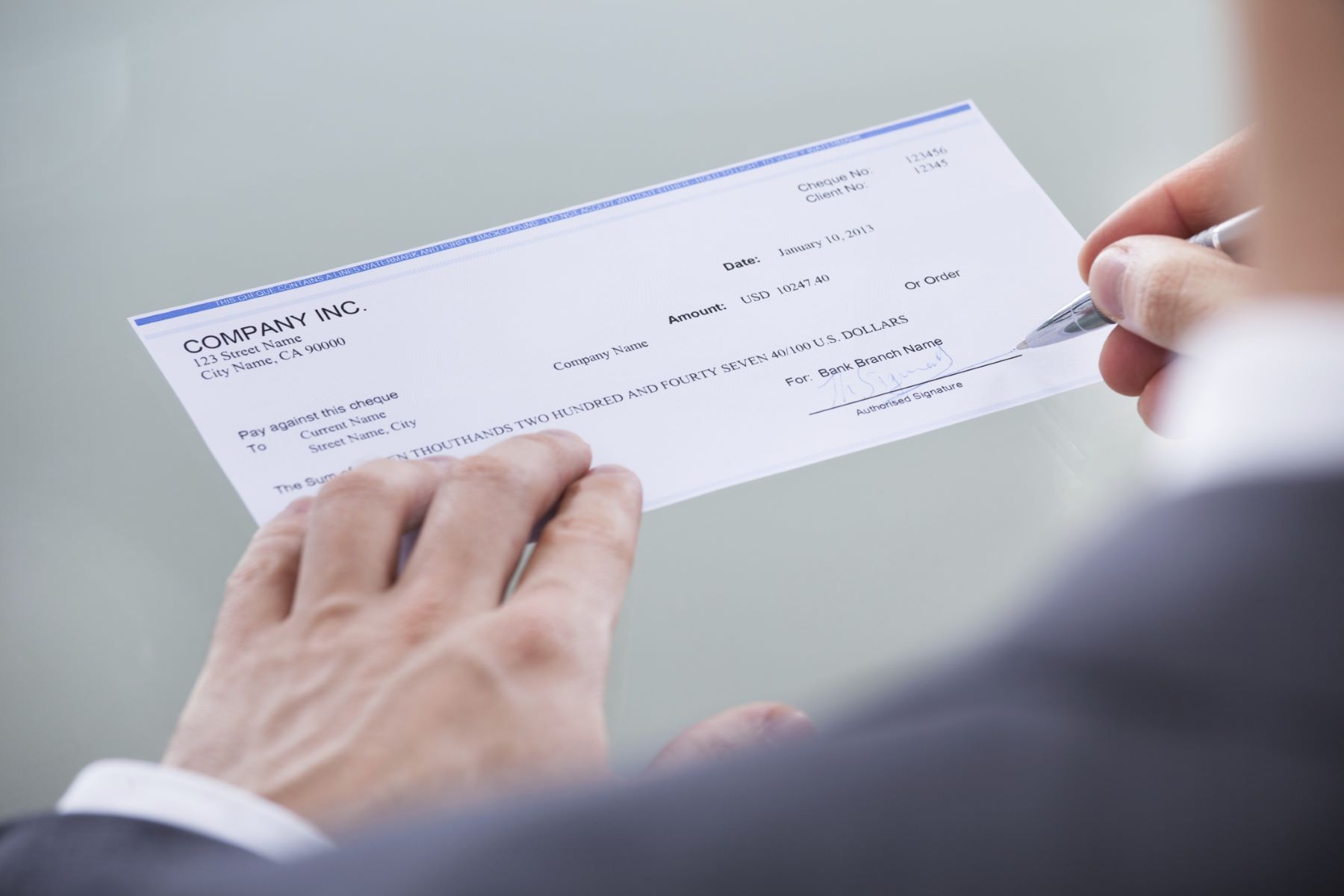Home>Finance>How Long Does It Take To Get An Insurance Check?


Finance
How Long Does It Take To Get An Insurance Check?
Modified: February 21, 2024
Discover how long it takes to receive an insurance check and manage your finances more effectively. Get insights and tips on the process in this informative guide.
(Many of the links in this article redirect to a specific reviewed product. Your purchase of these products through affiliate links helps to generate commission for LiveWell, at no extra cost. Learn more)
Table of Contents
- Introduction
- Factors Affecting Insurance Claim Processing Time
- Documentation and Information Gathering
- Claim Evaluation and Review
- Communication with the Insurance Company
- Settlement Negotiation
- Payments and Disbursement
- Delays in Insurance Claim Processing
- Tips for Expediting the Insurance Claim Process
- Conclusion
Introduction
When it comes to filing an insurance claim, whether it’s for auto, home, or any other type of insurance, one of the most common concerns is how long it will take to receive the insurance check. This is a valid concern, as many people rely on insurance payouts to cover expenses and recover from unexpected events. While there is no one-size-fits-all answer to this question, understanding the factors that affect insurance claim processing time can give you a clearer picture of what to expect.
The timeline for receiving an insurance check can vary greatly depending on several factors. Each insurance company has its own procedures and guidelines, and the specific circumstances of your claim can also impact the processing time. It’s important to remember that insurance companies aim to handle claims efficiently and fairly, but there are certain steps that need to be followed to ensure accurate evaluation and prompt payment.
In this article, we will explore the factors that can influence the time it takes to get an insurance check. We will also provide tips to help expedite the insurance claim process and ensure a smoother experience for you as the policyholder. While we cannot guarantee a specific timeframe for your claim, understanding these factors can help set realistic expectations and give you a better understanding of the process.
Factors Affecting Insurance Claim Processing Time
There are several key factors that can significantly impact the time it takes to process an insurance claim. It is crucial to understand these factors to gain insight into the potential delays or expediency of your claim. The following are some of the most common factors that can affect insurance claim processing time:
- Claim Complexity: The complexity of your claim plays a significant role in determining how long it will take to process. Claims that involve extensive damage, multiple parties, or require further investigation are likely to take longer to evaluate and settle.
- Type of Insurance: The type of insurance you are claiming can also impact the processing time. For example, claims related to auto accidents may have different processing timelines compared to claims for property damage or medical expenses.
- Policy Coverage: The specific terms and conditions of your insurance policy can influence the processing time. Some policies have exclusions or limitations that may require extra review or documentation before a claim can be finalized.
- Claim Documentation: The completeness and accuracy of the documentation you provide to support your claim is crucial. Insurance companies rely on this information to assess the validity of your claim and determine the appropriate payout. Any delays in providing required documents can prolong the processing time.
- Insurance Company Processes: Each insurance company has its own internal processes and procedures for handling claims. Some companies may have more streamlined systems in place, while others may have more extensive review processes that can extend the overall processing time.
- Third-Party Involvement: If your claim involves third-party liability or requires coordination with external parties, such as law enforcement or medical professionals, the processing time may be longer due to the need for additional communication and verification.
Note: While these factors are typical in most insurance claim scenarios, it is essential to review your specific policy and consult with your insurance provider for more accurate information related to your claim processing time.
Documentation and Information Gathering
One of the crucial steps in the insurance claim process is providing thorough documentation and gathering all the necessary information to support your claim. This step plays a significant role in determining the processing time of your claim. Here are some essential aspects to consider:
1. Incident Report: Start by filing an incident report as soon as possible after the event that triggered your claim. Whether it’s a car accident, property damage, or any other incident covered by your policy, documenting the details of the event is crucial to support your claim.
2. Gather Evidence: Collect any relevant evidence related to your claim. This may include photographs, videos, witness statements, or any other supporting documentation that can help substantiate your claim. The more comprehensive and detailed the evidence, the smoother the claim evaluation process is likely to be.
3. Insurance Policy Details: Have a copy of your insurance policy readily available. This will help you understand the coverage and exclusions that apply to your specific claim. It will also ensure that you provide accurate and relevant information when communicating with your insurance company.
4. Contact Information: Maintain a record of all contact information related to your claim. This includes the insurance company representative assigned to your case, adjusters, and any other individuals you may need to reach out to for updates or clarifications.
5. Medical and Repair Documentation: If your claim involves medical expenses or property repairs, gather all relevant medical and repair documentation. This may include medical bills, prescriptions, diagnostic reports, estimates, invoices, and any other supporting documents that validate the extent of your claim.
6. Timely Submission: Ensure that you submit all required documents promptly. Timely submission can help prevent unnecessary delays in the processing of your claim. Be sure to follow any specific instructions provided by your insurance company regarding document submission.
Remember: The accuracy and completeness of your documentation will directly impact the evaluation and processing time of your claim. It is essential to provide all relevant information and supporting documents to ensure a smooth and efficient claim handling process.
Claim Evaluation and Review
Once you have submitted all the required documentation and information, the insurance company will begin the process of evaluating and reviewing your claim. This step involves a thorough examination of the facts and circumstances surrounding your claim to determine its validity and the appropriate payout. Here’s what you can expect during the claim evaluation and review process:
1. Initial Assessment: Upon receiving your claim, the insurance company will assign an adjuster who will be responsible for evaluating your case. The adjuster will review the submitted documentation, assess the coverage provided by your policy, and determine the initial value of the claim.
2. Investigation: In some cases, the insurance company may initiate an investigation to gather additional information or clarify certain aspects of the claim. This may involve contacting witnesses, consulting experts, or working with other parties involved in the incident.
3. Policy Review: During the claim evaluation process, the insurance company will carefully review your policy to ensure that the claimed damages are covered. They will also consider any exclusions or limitations specified in the policy that may affect the extent of the claim payout.
4. Damage Assessment: If your claim involves property damage, an adjuster may be assigned to inspect and assess the extent of the damage. This may include visiting the site, obtaining repair estimates, and documenting the loss.
5. Medical Evaluation: For claims related to medical expenses or personal injuries, the insurance company may request additional medical documentation or consult medical professionals to assess the severity of the injuries and the necessary treatments.
6. Claim Adjustments: Based on their evaluation, the insurance company may make adjustments to the initial assessment of the claim. This can include revising the payout amount, considering any deductible, or determining the degree of fault or liability.
7. Communication: Throughout the evaluation and review process, the insurance company may communicate with you to request further information, clarify details, or provide updates on the progress of your claim. Open and timely communication can help expedite the overall processing time.
It’s important to note that the time required for claim evaluation and review can vary depending on the complexity of the claim, the availability of information, and any external factors involved. Maintaining patience and staying in contact with your insurance company can help you stay informed about the progress of your claim.
Communication with the Insurance Company
Effective communication with the insurance company plays a crucial role in expediting the processing of your insurance claim. Maintaining open lines of communication and providing prompt and accurate information can help ensure a smoother and more efficient process. Here are some key aspects to consider when communicating with the insurance company:
1. Contact Information: Make sure you have the correct contact information for your insurance company, including phone numbers, email addresses, and any other relevant points of contact. This will allow you to reach out whenever needed and stay updated on the progress of your claim.
2. Prompt Responses: Respond to any requests or inquiries from the insurance company in a timely manner. Delayed responses can lead to unnecessary delays in claim processing. If you need more time to gather information or provide documents, communicate this to the insurance company and establish a clear timeline.
3. Document Conversations: Keep a record of all communications with the insurance company, including phone calls, emails, and letters. This will serve as a reference point and help you track the progress of your claim. Make note of the date, time, name of the representative, and a summary of the conversation or correspondence.
4. Be Honest and Accurate: Provide accurate and truthful information to the insurance company. Misrepresenting or exaggerating the details of your claim can lead to serious consequences and potentially invalidate your claim. Be honest and provide the necessary information when requested.
5. Ask for Clarification: If you have any questions or concerns regarding the claim process or the requested documents, don’t hesitate to ask the insurance company for clarification. Understanding the requirements and expectations can help prevent any misunderstandings and ensure a smoother claim processing experience.
6. Keep Records: Maintain copies of all documents and correspondence related to your claim. This includes your claim form, supporting documentation, and any written communication with the insurance company. Having a well-organized file can help you track the progress of your claim and provide evidence if any disputes arise.
7. Follow Up: If there are delays or you haven’t received updates on your claim within a reasonable timeframe, it’s important to follow up with the insurance company. Express your concerns and inquire about the status of your claim. This proactive approach can help ensure your claim remains a priority and prompt action is taken to process it.
Remember, effective communication is a two-way street. Be courteous and professional while asserting your needs and concerns. By maintaining a positive and cooperative relationship with the insurance company, you can foster a smoother and more efficient claim processing experience.
Settlement Negotiation
During the insurance claim process, once the evaluation and review phase is complete, the insurance company will provide you with a settlement offer. This offer represents the amount they are willing to provide to resolve your claim. However, it’s important to remember that settlement offers are not set in stone, and there is often room for negotiation. Here are some key points to consider during the settlement negotiation process:
1. Understand Your Claim’s Value: Before entering into negotiations, it’s crucial to have a clear understanding of the value of your claim. Research and gather information about similar claims and their respective settlement amounts. This will help you establish a reasonable starting point for negotiations.
2. Review the Settlement Offer: Carefully review the settlement offer provided by the insurance company. Assess whether it adequately covers the damages, expenses, and loss you have incurred. Consider seeking professional advice, such as consulting with a lawyer or a public adjuster, if you feel the offer is inadequate or if you have concerns about its fairness.
3. Documented Evidence: Present any additional evidence or documentation that supports your claim and justifies a higher settlement amount. This may include repair estimates, medical bills, expert opinions, or any other relevant information that strengthens your case.
4. Maintain Open Communication: Engage in open and honest communication with the insurance company. Discuss your concerns and reasons for seeking a higher settlement. Be prepared to provide a clear and logical argument based on the evidence you have gathered.
5. Be Patient and Willing to Negotiate: Negotiation is a process that requires patience and a willingness to find a mutually agreeable outcome. Understand that the insurance company may counter your initial demand with a lower offer. Be prepared to counter their offer with a reasoned and well-supported argument.
6. Seek Legal or Professional Advice: If negotiations become difficult or you feel overwhelmed, consider seeking legal counsel or professional advice. An attorney or a public adjuster can provide guidance on the negotiation process, help you navigate any legal complexities, and advocate on your behalf to secure a fair settlement.
7. Read the Fine Print: Before accepting any settlement offer, carefully read through the terms and conditions. Ensure that by accepting the settlement, you are not waiving any rights or future claims you may be entitled to.
Remember: Settlement negotiation is a give-and-take process. Stay firm but reasonable in your negotiations, focusing on reaching a fair and satisfactory resolution for your claim.
Payments and Disbursement
Once the settlement negotiation is complete and a mutually agreed-upon amount is reached, the insurance company will proceed with the payments and disbursement process. It is essential to understand the steps involved and the expected timeline for receiving your insurance check. Here’s what you need to know:
1. Payment Method: Discuss with your insurance company the available options for receiving your insurance check. The most common methods include electronic funds transfer (EFT) directly into your bank account, a physical check sent via mail, or, in some cases, a prepaid debit card. Choose the method that is most convenient for you.
2. Processing Time: The time it takes for the insurance company to process the payment and disburse the funds can vary. It can range from a few days to several weeks, depending on the insurance company’s internal procedures and the specific circumstances of your claim.
3. Deductibles and Liens: Keep in mind that any deductibles specified in your insurance policy will be subtracted from the settlement amount before payment is made. Additionally, if there are any existing liens on your claim, such as medical liens or outstanding debts, the insurance company may work directly with the lienholder to disburse the funds accordingly.
4. Release of Claims: Before receiving the settlement payment, the insurance company may require you to sign a release of claims. This document confirms that you are satisfied with the settlement amount and releases the insurance company from further liability related to the specific incident covered by the claim.
5. Tax Implications: Depending on the nature of your claim and the specific tax laws in your jurisdiction, the settlement amount may have tax implications. Consult with a tax professional to understand any potential tax obligations associated with your insurance settlement.
6. Keep Records: Maintain thorough records of all documentation related to the settlement payment. This includes copies of the settlement agreement, payment confirmation, and any correspondence with the insurance company regarding the payment disbursement process. These records will serve as evidence and reference in case of any disputes or discrepancies.
7. Verify Accuracy: Upon receiving the insurance check, carefully review the payment amount to ensure it matches the agreed-upon settlement. If there are any discrepancies, promptly contact your insurance company for clarification and resolution.
Remember, each insurance company has its own specific procedures and timelines for payments and disbursement. If you have any concerns or questions regarding the process, don’t hesitate to reach out to your insurance company for clarification and assistance.
Delays in Insurance Claim Processing
While insurance companies strive to handle claims efficiently, various factors can contribute to delays in the claim processing timeline. Understanding these potential delays can help you manage your expectations and take appropriate steps to expedite the process. Here are some common reasons for delays in insurance claim processing:
1. Incomplete Documentation: Failure to provide complete and accurate documentation can significantly delay the processing of your claim. Missing or insufficient information may require additional follow-up by the insurance company, resulting in prolonged processing times. Ensure that all required documentation is submitted promptly and review it for completeness before sending it to the insurer.
2. Investigation and Verification: Claims that require further investigation or verification may experience delays. This is particularly true for complex claims involving disputes, multiple parties, or ambiguous circumstances. The insurance company may need to gather additional evidence, consult experts, or coordinate with external parties, all of which can extend the processing time.
3. High Volume of Claims: During periods of high claim volume, such as after a natural disaster or a significant event affecting a large number of policyholders, insurance companies may experience delays due to increased workload and limited resources. Claims are processed on a first-come, first-served basis, and a higher volume of claims can lead to processing backlogs.
4. Understaffed Claims Department: If an insurance company has a shortage of personnel in its claims department, it can result in slower claim processing times. Limited staff may struggle to handle the influx of claims effectively, leading to delays in evaluating and settling cases.
5. Disputes and Negotiations: If there are disputes or lengthy negotiations regarding your claim, it can significantly prolong the processing time. Resolving disagreements between the policyholder and the insurance company can take time, as both parties try to reach a mutually satisfactory resolution.
6. Legal or Compliance Requirements: In certain cases, legal or regulatory requirements may add complexity to the claim processing. For example, claims involving subrogation, legal settlements, or coordination with government agencies may involve additional paperwork or approvals, leading to delays.
7. Internal Processing Procedures: Each insurance company has its internal claims processing procedures, and some may have more time-consuming or bureaucratic processes compared to others. If the insurance company’s internal procedures are extensive or require multiple levels of review, it can contribute to delays in processing your claim.
To mitigate potential delays, promptly submit all required documentation, follow up with the insurance company, and maintain open lines of communication. If you feel your claim is experiencing unreasonable delays, contact the insurance company directly to inquire about the status and express any concerns you may have.
Tips for Expediting the Insurance Claim Process
Waiting for an insurance claim to be processed can be a stressful experience. While there’s no guaranteed way to expedite the process, there are several steps you can take to help move things along more efficiently. Here are some tips to consider:
1. Report the Claim Promptly: As soon as an incident occurs that may lead to an insurance claim, notify your insurance company right away. Reporting the claim promptly can help initiate the process sooner and potentially reduce processing time.
2. Understand Your Policy: Familiarize yourself with the terms and conditions of your insurance policy. Knowing what is covered and any limitations or exclusions can help you provide accurate information and documentation from the start, minimizing the need for additional follow-up.
3. Organize Documentation: Collect and organize all necessary documents and information related to your claim. This includes incident reports, photographs, receipts, medical records, and any other supporting documentation. Presenting a complete and well-documented claim package can expedite the evaluation process.
4. Provide Clear and Detailed Information: When communicating with the insurance company, provide clear and concise information. Be prepared to explain the details of the incident, the extent of the damages or loss, and any other relevant information requested. Avoid vague or ambiguous responses that may require additional clarification.
5. Be Responsive and Available: Respond promptly to any requests or inquiries from the insurance company. Timely communication and the provision of requested information can help keep the claim moving forward without unnecessary delays.
6. Follow Up Regularly: Maintain regular contact with the insurance company to check on the status of your claim. Politely inquire about any outstanding requirements or pending actions to ensure that your claim remains a priority.
7. Seek Professional Advice if Necessary: If you encounter challenges or delays in the claim process, consider seeking professional advice. An attorney or a public adjuster can offer guidance, help you navigate any complexities, and advocate on your behalf to expedite the claim resolution.
8. Document All Communication: Keep a record of all communication with the insurance company, including dates, times, names of representatives, and a summary of the conversation. This documentation will serve as a reference and aid in resolving any disputes that may arise.
9. Stay Informed: Stay updated on your rights and responsibilities as a policyholder. Understand the applicable laws and regulations that govern insurance claims in your jurisdiction. This knowledge can empower you to advocate for a fair and expedited resolution.
10. Stay Calm and Patient: While it can be frustrating to wait for a claim to be processed, it’s important to remain calm and patient. Delays can occur for various reasons, and maintaining a positive and cooperative attitude can help foster a more productive relationship with the insurance company.
Remember, every claim is unique, and the processing time can vary. By following these tips, you can help expedite the insurance claim process and increase your chances of a prompt and favorable resolution.
Conclusion
Filing an insurance claim can be a stressful and uncertain experience, but understanding the factors that affect claim processing time can help set realistic expectations. While every claim is different, certain steps can be taken to potentially expedite the process and receive your insurance check more quickly.
From promptly reporting the claim to providing thorough documentation and engaging in effective communication, there are proactive measures you can take to facilitate a smoother and more efficient claim resolution. It is important to stay organized, responsive, and cooperative throughout the process.
However, it’s essential to remember that each insurance company has its own internal procedures, and external factors can also impact the duration of the claim processing. Delays can occur due to complexities of the claim, high claim volume, or discrepancies that require further investigation. Patience and understanding are crucial during these times.
If you encounter difficulties or have concerns about the processing of your claim, don’t hesitate to reach out to your insurance company for updates and clarification. Seeking professional advice from attorneys or public adjusters can also provide valuable guidance and advocacy.
Ultimately, the goal is to reach a fair settlement that adequately covers your damages and losses. By following the tips outlined in this article and maintaining open communication, you can increase the likelihood of a faster and more satisfactory claim resolution.
While we cannot guarantee a specific timeline for your claim, having a clear understanding of the process and taking proactive steps can help ease the stress and uncertainty associated with waiting for an insurance check.
Remember, each claim is unique, and it’s important to consult with your insurance company for personalized information regarding your specific situation. Whether it’s an auto, home, or any other type of insurance claim, staying informed and engaged can empower you throughout the process.














